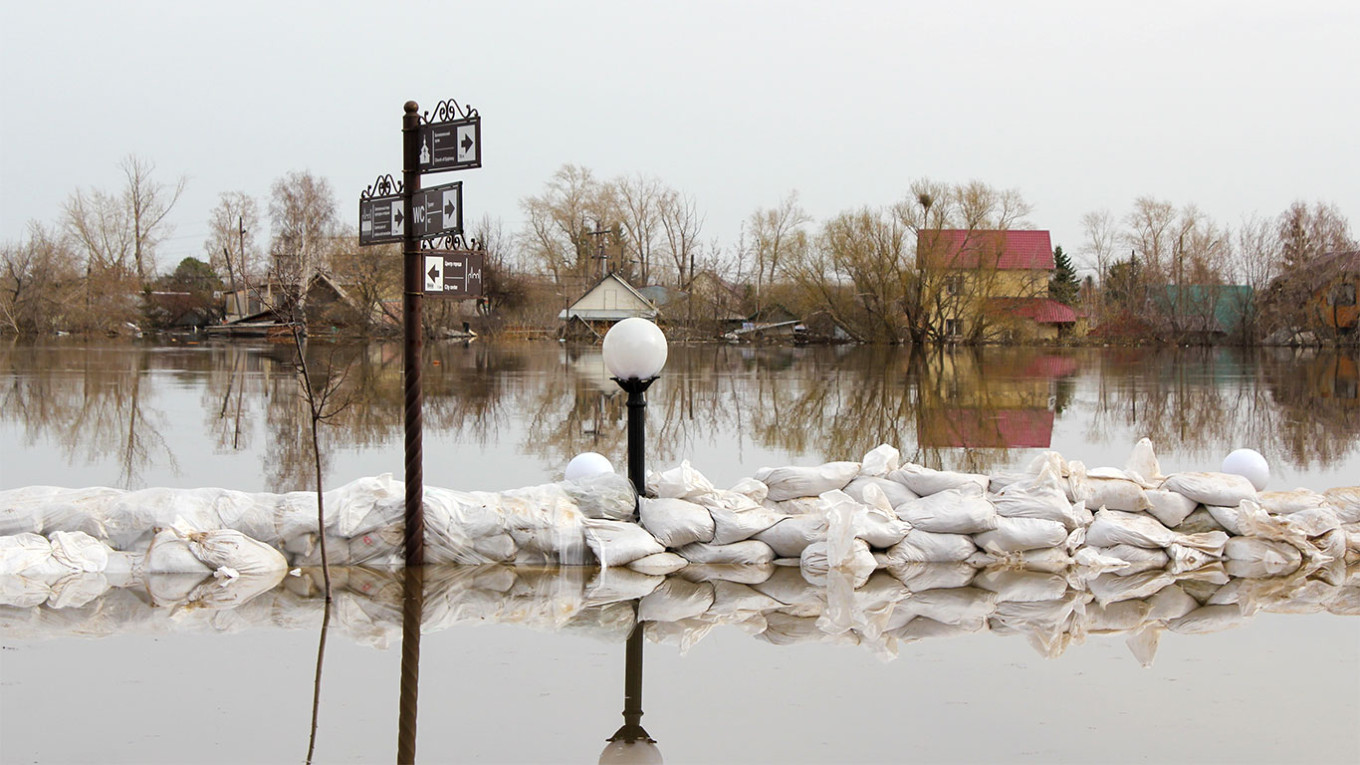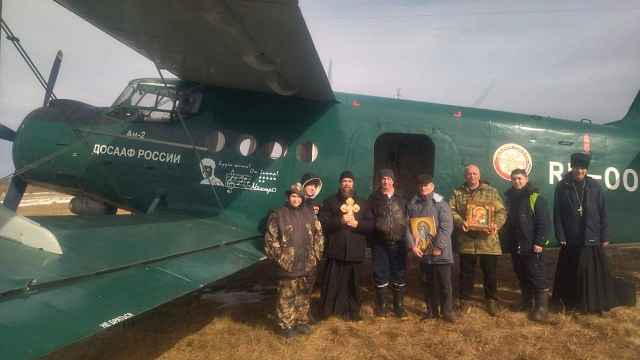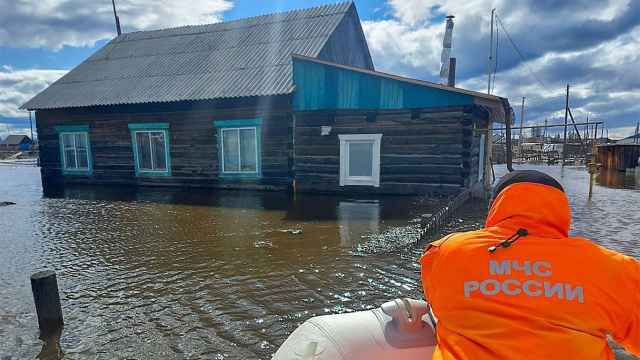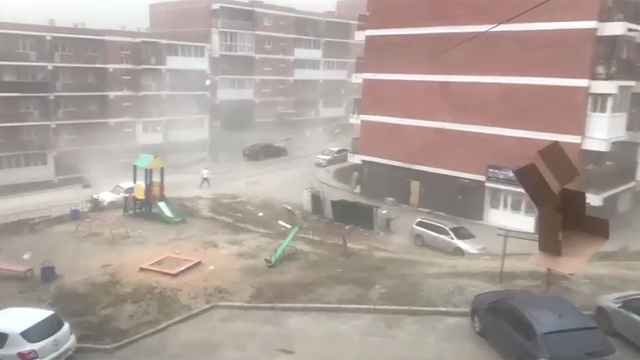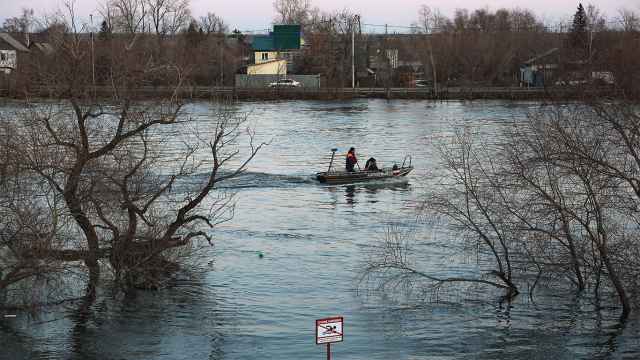Authorities in western Siberia’s Tyumen region said Tuesday that “abnormal” flooding has led to revised predictions for the anticipated peak water levels in the Tobol and Ishim rivers.
“Along the Tobol River, hydrologists have observed abnormal behavior. The water moves very slowly because it’s spilling over the floodplain,” Tyumen region Governor Alexander Moor said on social media. “Flood peaks are shifting [to] after May 6 [and] May 9-10.”
The Ishim River was expected to peak at 12.15 meters on Monday, but Moor said water levels had risen to 12.22 meters on Tuesday morning and continued to increase.
“That’s 74 centimeters above the peak of 2017,” he said.
Later on Tuesday, the governor said the Ishim River was also expected to reach peak levels on May 5-6.
Authorities in the Tyumen region declared a state of emergency on April 8 due to the two swelling rivers, with mandatory evacuations ordered in two regional districts. Officials previously said the Ishim River would reach peak levels around April 23-25.
Since early April, Russia and neighboring Kazakhstan have been battling devastating floods that have forced the evacuation of tens of thousands of people.
Spring flooding caused by melting ice is common in some parts of Russia, but this year’s heavy rainfall, combined with unusually warm spring weather, has led to severe flooding in Russia’s Urals and western Siberia.
A Message from The Moscow Times:
Dear readers,
We are facing unprecedented challenges. Russia's Prosecutor General's Office has designated The Moscow Times as an "undesirable" organization, criminalizing our work and putting our staff at risk of prosecution. This follows our earlier unjust labeling as a "foreign agent."
These actions are direct attempts to silence independent journalism in Russia. The authorities claim our work "discredits the decisions of the Russian leadership." We see things differently: we strive to provide accurate, unbiased reporting on Russia.
We, the journalists of The Moscow Times, refuse to be silenced. But to continue our work, we need your help.
Your support, no matter how small, makes a world of difference. If you can, please support us monthly starting from just $2. It's quick to set up, and every contribution makes a significant impact.
By supporting The Moscow Times, you're defending open, independent journalism in the face of repression. Thank you for standing with us.
Remind me later.


